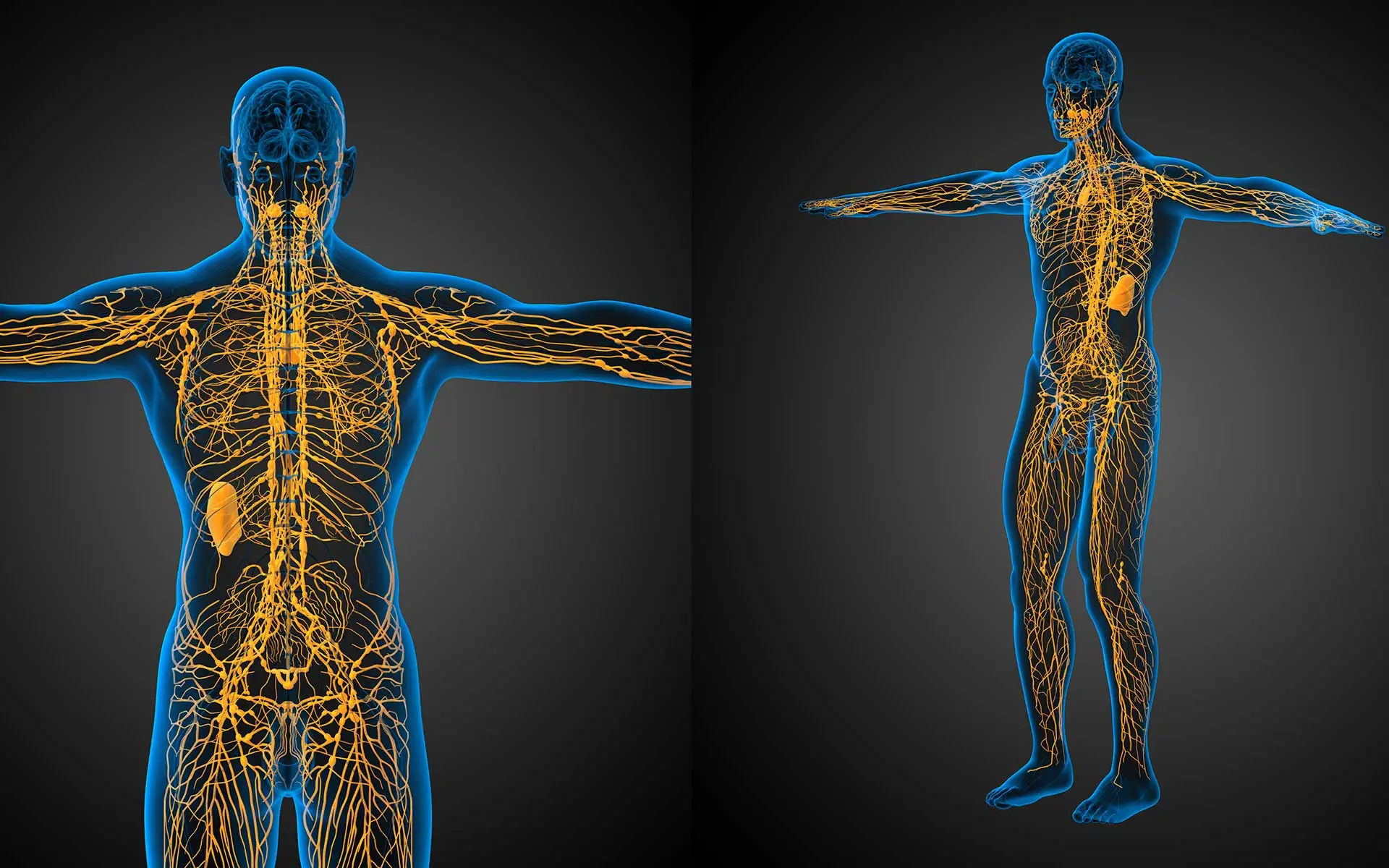
Waking Up to Shoulder Pain: Causes, Solutions, and How to Sleep Soundly
Waking Up to Shoulder Pain: Causes, Solutions, and How to Sleep Soundly
Waking up with shoulder pain, or having it disrupt your sleep, can be incredibly frustrating, leaving you tired and irritable. This nocturnal discomfort is often linked to your sleeping position, but can also signal underlying issues like damaged tendons, arthritis, rotator cuff injuries, or frozen shoulder. Even pregnancy can contribute to overnight shoulder aches.
Shoulder pain frequently intensifies at night because even at rest, pressure on the joint can aggravate inflammation. Furthermore, inadequate mattress or pillow support can exacerbate nerve pain, making sleep a challenge.
This article will delve into the various causes of shoulder pain during sleep, offer practical solutions to alleviate discomfort, and guide you on the best sleeping positions to promote restful nights.

Understanding Your Shoulder: A Complex Joint
The shoulder is an intricate structure comprising tendons, muscles, the shoulder blade (scapula), collarbone (clavicle), and upper arm bone (humerus). Dr. Stephen Kishner, a specialist in physical medicine and rehabilitation, highlights its wide range of motion, which unfortunately also makes it unstable and prone to injury. A common issue is damage to the rotator cuff—a group of muscles and tendons providing shoulder strength. Inflammation or a tear in these tendons can lead to intense pain, often worsening at night.
Symptoms of Nocturnal Shoulder Pain
Shoulder pain at night can manifest in various ways, often accompanied by other uncomfortable symptoms:
-
Waking up with neck and shoulder pain
-
Morning stiffness when attempting to move your arms
-
Intense pain in the shoulder when sleeping on your side
-
Pain that radiates from your arm across your shoulder blades
-
Throbbing pain in one shoulder, unrelieved by changing position
-
Waking up with numbness in your shoulder or upper arm
-
Severe shoulder pain after sleeping
-
Shoulder spasms at night due to strained or overused muscles
-
Sore shoulders and arms after sleeping

Common Causes of Shoulder Pain from Sleeping
Why do your shoulders hurt when you sleep? Here are the primary reasons for night-time shoulder pain:
-
Acute or Chronic Shoulder Injury: The most frequent cause is an injury to your upper limbs or shoulder blade. Acute injuries can result from falls or lifting heavy items, causing sharp pain that intensifies when lying down. Chronic injuries, developing over time (e.g., from overuse), can lead to a dull, aching night pain, often with no clear trigger (2).
-
Frozen Shoulder (Adhesive Capsulitis): Characterized by aching pain that can become intense at night, disrupting sleep. It also severely limits arm motion and can last up to three years (3).
-
Rotator Cuff Tendonitis, Shoulder Impingement, or Bursitis: These conditions involve inflammation or irritation within the shoulder joint.
-
Rotator Cuff Tendonitis: Overuse leads to irritated and inflamed tendons, making sleep uncomfortable (5).
-
Shoulder Impingement Syndrome: Persistent pain, often worse during sleep, due to soft tissues being "pinched" in the shoulder (6).
-
Bursitis: Inflammation of the bursa (fluid-filled sacs that reduce friction) causes pain that intensifies at night (4).
-
-
Rotator Cuff Tear: A more severe injury, causing deep throbbing pain, especially when sleeping on the affected side. Pain can be acute from trauma or develop over time (7).
-
Brachial Plexus Injury: Damage to the network of nerves running from your spine to your armpit can cause sharp shoulder pain, even when lying in any position, sometimes accompanied by armpit pain (8).
-
Myofascial Pain Syndrome: Muscle pain in the shoulders and upper back, often due to "trigger points" or knots. This can cause severe nocturnal pain and sleep disturbances (9).
-
Sleeping Position: Sometimes, shoulder pain is simply due to sustained pressure. Sleeping on one side for prolonged periods can cause pain in that shoulder due to the body's weight (10).
-
Pregnancy: In the third trimester, extra weight can strain back muscles, leading to sore shoulders, especially when sleeping on one side.
-
Acromioclavicular Joint Injury: Damage to the collarbone can cause varying degrees of nocturnal shoulder pain, often radiating from the neck (11).
-
Thoracic Outlet Syndrome: Pain originating in the middle back (thoracic region) that spreads to the shoulder blades. This can cause night-only pain, often with numbness or tingling in one arm (12, 13).
Other Potential Causes of Waking Up with Shoulder Pain:
-
Arthritis: Shoulder arthritis often causes night-time pain, leading to chronic tiredness and fatigue (14).
-
Pinched Nerve: A pinched nerve in the spine (cervical radiculopathy) can cause persistent neck pain that radiates to the shoulder, with muscle weakness or tingling down one arm (15).
-
Referred Shoulder Pain: Dull aching or burning sensations in the shoulder blades or sharp pain under the shoulder blade may originate elsewhere in the back, spine, or neck (16).
-
Heart Attack: While primarily chest pain, heart attack pain can spread to the shoulders, down one or both arms, or be felt intensely between the shoulder blades (17). Seek immediate medical attention if you suspect a heart attack.
-
Poor or Uncomfortable Bed: An old or unsupportive mattress can lead to shoulder stiffness and pain. Studies show that replacing older bedding systems can significantly improve sleep quality and reduce shoulder pain (18). A medium-firm mattress is often recommended (20).

How to Sleep with Shoulder Pain
Optimizing your sleeping posture and environment is key to minimizing nocturnal shoulder pain:
-
Avoid certain positions: Do not sleep with your arm extended above your head. Avoid sleeping on your stomach, as this puts extra strain on your upper back and shoulders (19).
-
Mattress quality: Ensure your bed is comfortable and supportive, not too soft. A medium-firm mattress has been shown to reduce clinically diagnosed shoulder pain (20).
-
Strategic sleeping: If you have rotator cuff injuries, try sleeping on your back or on the unaffected side, using pillows for support.
Relieving Shoulder Pain at Night: Solutions and Tips
What can you do to improve symptoms of night-time shoulder pain and enhance your sleep quality?
1. Stretches to Relieve Shoulder Pain When Sleeping:
Gentle, regular stretching can help free up a stiff shoulder and ease nocturnal discomfort.
-
Shoulder Cross-Body Stretch:
-
Hold your affected arm out in front of you.
-
Keep your other elbow tight to your side and grip the affected arm's elbow with your free hand.
-
Gently pull your affected arm across your chest as far as comfortable.
-
Hold for 30-60 seconds, relax, and repeat 3-5 times.
-
-
Neck Release for Shoulder Pain:
-
Sit with a straight back and shoulders slightly back.
-
Lower your chin to your chest to stretch neck tendons.
-
Keeping your chin on your chest, gently tilt your head to the right and hold for 30 seconds.
-
Gently tilt to the left and hold for 30 seconds. Repeat to strengthen neck and shoulder tendons.
-
2. R.I.C.E. Method for Acute Pain:
If a painful shoulder keeps you awake, apply the R.I.C.E. method (Rest, Ice, Compression, Elevation) for immediate relief, especially in the first 72 hours after an injury.
-
Rest: Avoid any activity that causes pain or strains the arm/shoulder.
-
Ice: Apply a cold pack or bag of frozen peas (wrapped in a thin towel) to the shoulder joint for 15 minutes every hour.
-
Compression: Wrap a large elastic bandage over the injured shoulder.
-
Elevation: Avoid lying down on the injured shoulder.
-
Warmth (after initial injury): After the initial acute phase, switch to a warm compress to help relieve muscle pain and soreness.
3. Choosing the Best Pillow for Shoulder Pain:
A good-quality, comfortable pillow is crucial for quality sleep and preventing neck and shoulder stiffness (21).
-
Support: Your pillow should adequately support your head and neck without flattening. Memory foam pillows are often good for neck support.
-
Height: Avoid pillows that are too high, as they can strain your neck. Pillow height should vary based on your sleeping position (lower for back sleepers, higher for side sleepers).
-
Fill Material: Feather pillows, for example, have been consistently rated lower in comfort and sleep quality (21).
4. Relieving Rotator Cuff Pain When Sleeping:
-
Back sleeping with support: Lie on your back and place a pillow under your affected shoulder to relieve pressure.
-
Unaffected side sleeping: Sleep on the side that isn't sore, keeping the affected shoulder elevated. Place a pillow between your legs to maintain body alignment and reduce upper back pressure.
-
Heat application: Apply a heat pack to your sore shoulder joint about 20 minutes before bed to increase blood circulation to the area.
When to See a Doctor
While most shoulder pain resolves with rest and home care, certain symptoms warrant immediate medical attention:
-
Inability to move your arm without extreme pain.
-
Sudden swelling in your shoulder joint.
-
Warmth and redness around the shoulder.
-
Chronic shoulder pain at night that consistently disrupts your sleep or prevents adequate rest.
News in the same category


Doctors Issue Urgent Warning: Weight-Loss Jab Users Risk Malnutrition and Muscle Loss Amid Diet Concerns

You Should Never Ignore These 9 Things Your Fingernails Reveal About Your Health

6 Foods That Are Not Compatible with Tumors, Remember to Eat Them Regularly

Before Cancer Knocks: 4 Signs on Your Hands and Feet Not to Be Ignored

Doctors Warn: 4 Food Storage Habits in the Refrigerator That Can Cause Cancer

Doctors Said It Was Gallstones—But It Was Stage Four Cancer

20-Year-Old Teacher Dies from Liver Cancer: Doctor Warns That Odor in 3 Body Areas Could Signal a Failing Liver

Young Woman Dies at 27 from Late-Stage Thyroid Cancer: Doctors Say It's Linked to a Pre-Bedtime Habit

A 43-Year-Old Female Teacher Diagnosed with Two Types of Cancer at Once: Warning Signs Ignored for 6 Months

Beyond the Fruit: Uncovering the Science-Backed Health Benefits of Bananas and Their Peels

Life-Saving Insights: 10 Tips to Lower Your Stroke Risk & Recognize Early Warning Signs

The Power of Water Fasting: Regenerate Your Immune System, Slow Aging, and Boost Health

Nurse at palliative care reveals the top 5 regrets of people right before they died

Beyond Weight Loss: Ozempic Users Report Surprising Mental Health and Taste Bud Changes

Woman Declared Dead for 27 Minutes Scribbles Haunting Message Upon "Return to Life"

Unlock Health: Surprising Benefits of Drinking Baking Soda Water

50-Year-Old Man Dies from Destroyed Liver: '2 Pains and 2 Itches' Appearing Abnormally Indicate Liver Disease

Breakthrough: Doctors Have Found a Way to Transform Cancer Cells Back to Normal
News Post

Your Lymphatic System: A Hidden Key to Lifelong Health

Doctors Issue Urgent Warning: Weight-Loss Jab Users Risk Malnutrition and Muscle Loss Amid Diet Concerns

Here’s Why You Should Always Leave A Coin In The Freezer Before You Leave The House

10 DIY Coffee Face Packs for Glowing, Smooth Skin – Harness the Power of Coffee in Your Skincare Routine
By incorporating coffee into your beauty routine, you can tackle various skin concerns like wrinkles, dark spots, and dullness while promoting smoother, firmer, and more radiant skin.

Three robbers approach a 77-year-old granny at the ATM; biggest mistake of their lives

You Should Never Ignore These 9 Things Your Fingernails Reveal About Your Health

6 Foods That Are Not Compatible with Tumors, Remember to Eat Them Regularly

Before Cancer Knocks: 4 Signs on Your Hands and Feet Not to Be Ignored

Doctors Warn: 4 Food Storage Habits in the Refrigerator That Can Cause Cancer

5 Stories of Husbands Who Hid Life-Changing Secrets – Until They Couldn't
Prepare to delve into shocking stories about betrayal in marriages. Betrayals that include husbands who lie about not getting paternity leave, those who conspire with their mothers to steal from their wives, and even husbands who try to sell their wives'

A Caretaker’s Love Rewarded: How an Elderly Woman’s Final Act of Kindness Changed My Life Forever
A caretaker’s selfless love for an elderly woman is rewarded in the most unexpected way. Read this emotional story of family, forgiveness, and the true meaning of love.

MY IN-LAWS DEMANDED OUR LUXURY VILLA ON OUR FAMILY HONEYMOON – MY HUSBAND GAVE ME THE GREEN LIGHT TO SET THEM STRAIGHT
A luxurious honeymoon turned into a nightmare when my in-laws demanded our villa. See how I took a stand and gave them a lesson they wouldn't forget, with my husband's unexpected support!

Doctors Said It Was Gallstones—But It Was Stage Four Cancer

"She Caught Her Husband with Another Woman — What Veronika Did Next Will Sh0ck You"
Irina has spent years quietly tolerating the intrusive, critical behavior of her mother-in-law and sister-in-law during their weekly family gatherings. But after years of putting up with their disrespect, she reaches her breaking point. One evening, when

After Mom’s Death, Son Finds a Childhood Photo with Her and a Boy Who Looks Just Like Him — The Heartwarming Discovery
After his mother’s passing, Ben Dixon visits her home in Texas to handle her belongings and prepare the property for sale. While sorting through old photographs, he stumbles upon one showing his mother with a boy who looks strikingly like him. This disc

She Stayed Silent for a Year, But One Evening, She Took a Stand Against Her Husband’s Relatives — Here's What Happened!
Irina has quietly endured the weekly disruptions caused by her husband's family, always putting her own needs aside to cater to them. But after a year of criticism, unwarranted interference, and constant disrespect, she finally finds the courage to stand

Entitled Parents Insulted My Grandma at Her Restaurant — What the Customers Did Next Left Them Speechless!
In a small, family-run restaurant, a quiet afternoon is interrupted by a rude group of entitled tourists who insult the owner, Aurora's grandmother. What starts as an uncomfortable encounter quickly turns into a powerful lesson in grace and dignity. With

My husband left me for another woman, abandoning me with four children and a mountain of debt. But soon, fate gave me a gift I never even dared to dream of
Anya’s life is turned upside down when her husband Sergey abandons her and their children for another woman. Struggling with overwhelming debt and the responsibility of four children, Anya fights to keep her family afloat. Amidst the challenges, Anya di

My Son’s Love for Baking Sparked a Family War — What My Mother Did Will Leave You Stunned
A father stands up to his mother when she tries to crush his son's dream of becoming a baker. Despite her disapproval and harsh words, he defends his son's passion for baking, showing him unconditional love and support. When his mother goes too far by thr